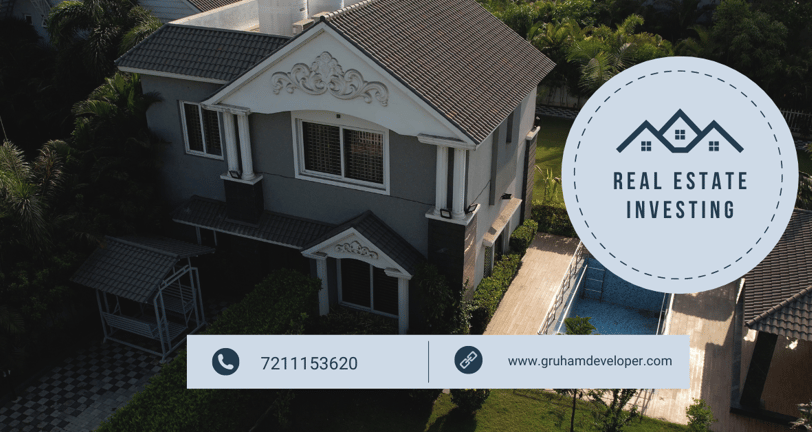How to Invest in Value-for-Money Real Estate Properties: A Guide for Savvy Investors
Discover the secrets of investing in value-for-money real estate properties with our comprehensive guide for savvy investors. Start maximizing your investments today!
4/26/20243 min read


In the exciting world of real estate, discovering houses that provide extraordinary value can seem like hitting gold. But do not worry, discerning investor! With the appropriate methodology, you can explore the market and discover hidden gems that generate high returns. This blog will provide you with the knowledge and tactics you need to become a good value real estate investor.
Understanding Value: Beyond Square Footage
While large living spaces are appealing, true worth lies deeper. Here are some crucial variables to consider:
Location: A home in a desirable area with good rental returns or considerable potential for appreciation outperforms sheer size in a decreasing neighborhood. The proximity to amenities, infrastructure, and job centers has a substantial impact on value.
Property Condition: A fixer-upper can provide a reduced starting point, but renovation costs must be considered. In contrast, a move-in-ready property may cost a higher price but requires less initial investment.
Long-Term Potential: Think about future development plans in the area. A property near impending infrastructure projects may enjoy a value increase compared to a property in a static zone.
Research is Your Ally
Market Analysis: An in-depth look at local market trends. Determine the average rental prices, property valuations, and vacancy rates in your target areas. This allows you to locate potential underpriced diamonds.
Comparable Properties: Investigate similar properties in your chosen location. Examine their features, condition, and sale pricing. This allows you to negotiate confidently while avoiding overpaying.
The Art of the Deal
Pre-approval is key: A pre-approval for a mortgage boosts your offer and displays financial preparedness. Sellers are more willing to negotiate with a serious buyer.
Negotiate Like a Professional: Don't be scared to haggle the price depending on your study and the condition of the property. To make a convincing argument for your offer, provide similar property data.
Consider all costs: Consider future maintenance costs, property taxes, and insurance when assessing the entire value offer.
Beyond the Basics: Alternative Strategies
Foreclosures and short sales: These sales can provide huge savings, but due diligence is essential. Make sure the title is clear and factor in any repair costs.
Off-market Deals: Connect with real estate agents and investors. You may discover previously unknown opportunities.
Conclusion
Finding value-for-money real estate necessitates a smart strategy. By prioritizing location, understanding genuine value, completing thorough research, and bargaining effectively, you'll be well on your way to acquiring homes that provide high returns on investment. Remember: information is power. With the correct information and tactics, you can confidently navigate the real estate market and discover hidden gems that can enhance your portfolio.
FAQ'S
Q1. How do I identify value-for-money real estate properties?
Research local markets, consider factors like location, amenities, future development plans, and comparable property prices. Look for properties that offer below-market pricing, have potential for appreciation, and meet your investment criteria.
Q2.What are the key indicators to look for in a good real estate investment property?
Strong rental demand, positive cash flow, appreciation potential, low maintenance costs, and favorable location are all important indicators to consider when evaluating a real estate investment property.
Q3. Is it better to invest in new or existing real estate properties?
It depends on your investment goals and risk tolerance. New properties may offer modern amenities and higher rental rates, but may also come with higher purchase costs. Existing properties can be more affordable but may require renovations or upgrades.
Q4. How do I secure financing for a real estate investment property?
Explore different financing options such as traditional mortgages, FHA loans, or private lending. Determine your eligibility, compare interest rates, and calculate your monthly payments carefully to ensure affordability.
Q5. How can I increase the return on investment from my real estate properties?
Improve rental rates by updating amenities, offering incentives to tenants, or leveraging technology. Reduce expenses by negotiating lower property taxes, optimizing insurance coverage, and managing maintenance costs efficiently. Consider exploring additional income streams such as laundry facilities or storage units.
Gruham Developers
108,109,110, Laxmi Enclave, Near Gajera School, Katargam, Surat
Socials
Subscribe to our newsletter
+917211153620
